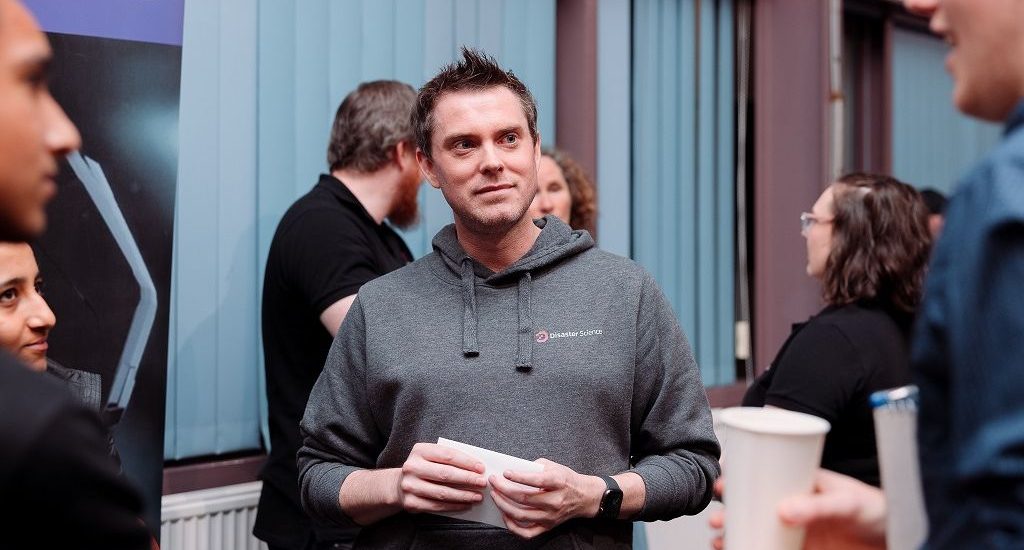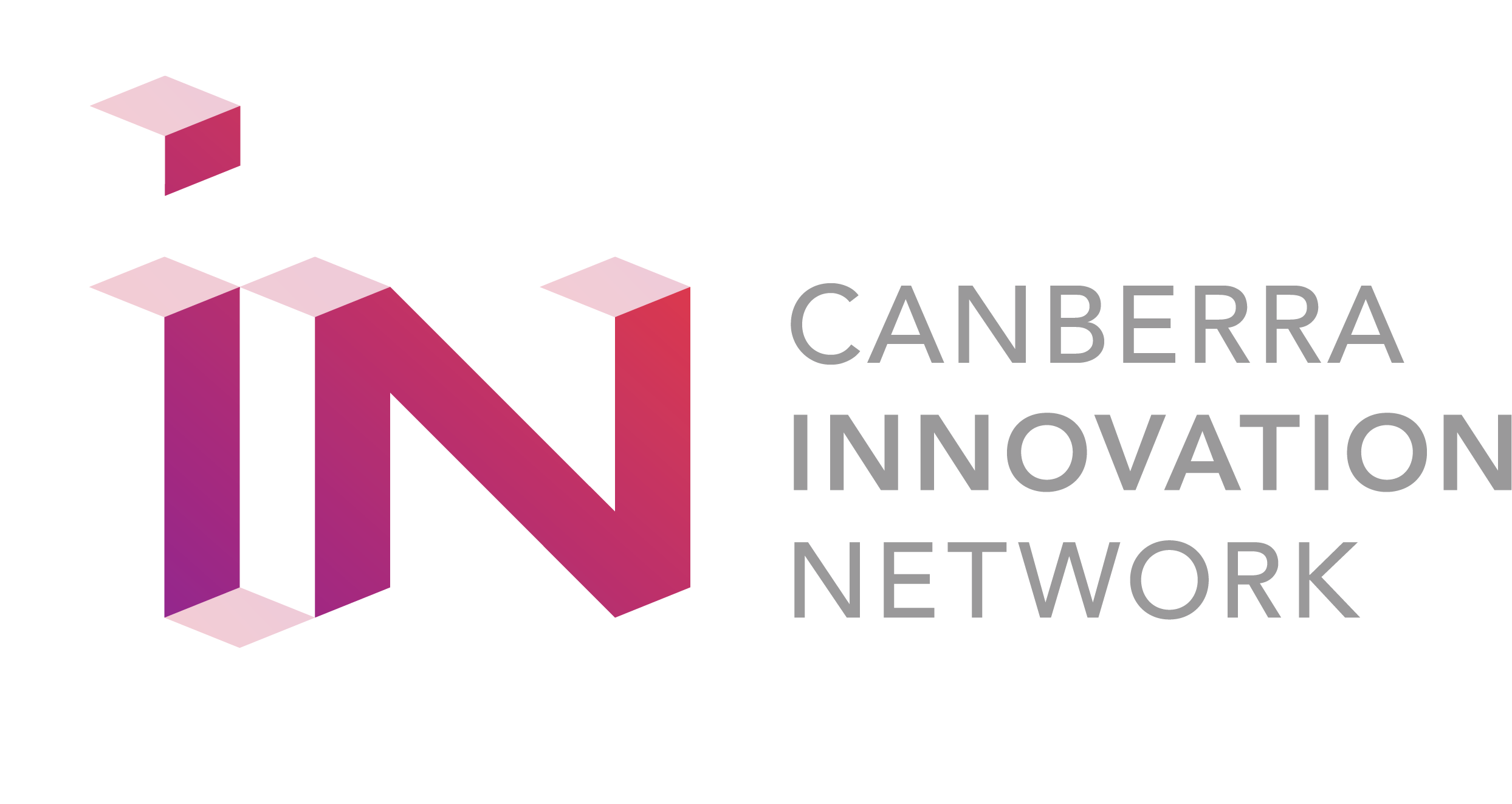- 18 July 2022
- Posted by: Canberra Innovation Network
- Categories: Innovation Connect Grant, Startup Stories & Profiles

You may have heard about the Innovation Connect Grant, but have you met the most recent recipients? We spoke to Tristan Morris, founder of Disaster Science, to find out what sparked his great idea and how the company got to where it is now.
Congratulations on being awarded an ICON grant! For anyone who has not yet heard about Disaster Science, can you tell us a bit about what the company is?
We’re keeping the community safer by providing information on unfolding natural disasters to the general public, first responders, business and government. Our publicly accessible app is available at https://bushfire.io and on the app stores at “Bushfire.io”.
By keeping people and businesses more informed through our advanced tools and technologies, the quality of decision making will improve. For instance, if you know which way the wind is blowing then you know which direction a fire is spreading. This informs how best to control the fire, or how to escape it, or what critical infrastructure might be in its path and where preventative controls might be effective. Our information helps you to make a more informed decision, for your own circumstances.
What an interesting idea, and beneficial for so many people. So, how did it all begin?
Like many people just after Christmas 2019, I travelled to Ulladulla from Canberra when the Black Summer fires were less active to hang out with friends and their families. Two nights before I was planning to travel back, someone mentioned the roads to the south were being closed. This was how I was planning to travel back and I thought it was strange. I got petrol late that night, got up early and drove back to Canberra. Passing many fire trucks heading in the other direction. It was a pretty uneventful but smoky drive. I was thinking about the impact the fires were having on our communities and if there was a way to apply my tech skills to help, or should I donate to Celeste. I got back to Canberra, opened ABC News and saw pictures of the town of Cobargo had been destroyed. People were missing, presumed dead. I started to do a bit of research into the tech available. I went to bed. I jolted awake the next morning–it was super weird, as if my subconscious had been working away on the problem–and decided to do something about it. I wrote a prototype app within a few days, released it online, told some friends, they checked in if I was happy for them to pass it on. I was super nervous about this as I had so many outstanding questions, what if things go wrong? What is this liability people talk about? Could I go to jail? Or can it be managed by providing consent, seeking feedback and adjusting. This problem, break the problem down, solve each bit, then the large problem is solved cycle/approach helped tackle the really gory issues.
Oh wow, what an origin story! What were you doing before all this?
I was a Commonwealth public servant with experience leading multiple tech areas/teams, covering network security, software engineering, data science, and AI/ML. Before that, I worked in healthcare and essentially made it possible for a patient to visit a radiology clinic in regional Victoria and have their films reported on by a radiologist in the city within minutes to hours – this was 15 years ago. My education is in computer science, software engineering at Deakin, and psychology at UC.
What is your ultimate goal?
The dream is that people would no longer die from natural disasters. And for society to use technology to solve more real-world problems, not just for profiting from likes or advertising.
It might not be a popular viewpoint, but should we expect more as citizens? We invest billions in the defence of Australia (as do countries around the world), why not use defence resources for natural disasters? I’m not saying we have soldiers on the ground, but defence has a lot of ‘stuff’. Fancy satellites, boats, planes, infrastructure etc. Imagine if the RFS/CFA/SES/we could use some of this stuff to help respond to disaster or prevent it occurring in the first place. Using super compute resources to improve storm modelling (or simply providing compute time), satellite time to observe disaster unfolding in real-time and better direct response efforts, or cell tower access to alert people. What’s stopping this?
Have you had any big wins so far that you’d like to share?
Honestly, I’m one of those people who loves the journey. I don’t think there’s a single biggest win. But there have been countless little wins along the way. There’s something extremely satisfying when you take a risk, and to your complete surprise other people find something you’ve invested countless hours in useful; or when they reach out and say thank you or tell you their story.
My favourite story, and chokes me up writing this, was from one of our users who explained how their son, who has autism, was able to use Bushfire.io and understand what was going on around them. They were so incredibly thankful that we/I’d helped to calm them in amongst the chaos of a large fire encroaching their property. It’s truly humbling.
That’s really inspiring. Can you tell us some of the lessons you’ve learnt along the way?
“Traditional start-up problems” are a thing and are completely normal and okay. One of my biggest learnings is that it is normal to experience what it’s like to feel completely alone and isolated at times. Perhaps it’s because of not having a team, an unpopular decision, circumstance, no revenue, making a bold and risky decision, or because you’re trailblazing. This anxiety is a very normal feeling but it can also be a sign of something being very wrong. It can be inoculated by having a positive team around you, strong supports from your family and friends, but also having people to call on is just invaluable. If you don’t have these supports, start today, reach out. Reach out to me if I can help. You can’t do everything yourself.
At CBRIN we’re all about innovation (obviously!), so what does innovation mean to you?
Innovation to me is about doing it, being bold and challenging the status quo.
I used to sit in mind-numbing meetings day-after-day where very senior people who’d never created anything would talk through how an innovation strategy should be sold, so people get on board. What words should the strategy use. The strategy would be then finalised and released, only for those senior people to then question why someone very junior was bold, did something a little different, innovated and creating something valuable.
And final question, what advice would you give to someone about to kick off their startup?
Do it. Talk to your friends, people at the Canberra Innovation Network, and get feedback. Lean into the negative feedback. Iterate.
These points are most relevant for tech focused start-ups – start small. Like super small. Minimum viable. Get feedback from users, listen, LISTEN. What didn’t they say? And refine what you’ve done. Don’t go and spend thousands of dollars, or waste countless hours. The first version of Bushfire.io was released within three days (24-36hrs of dev time) and feedback sought. Initially my friends who were trapped at the south coast provided feedback – they were the ones trapped and who it was originally for. The first iteration was completely re-written as there was no way for it to do something I can’t even remember. Had it not been small to start, the sunk cost could have been huge.
What brilliant advice! Thank you for taking the time to chat with us, we can’t wait to hear what you get up to next.
The next round of Innovation Connect grants open 1st August, click here to find out more or book an intro meeting if you’d like to apply.

